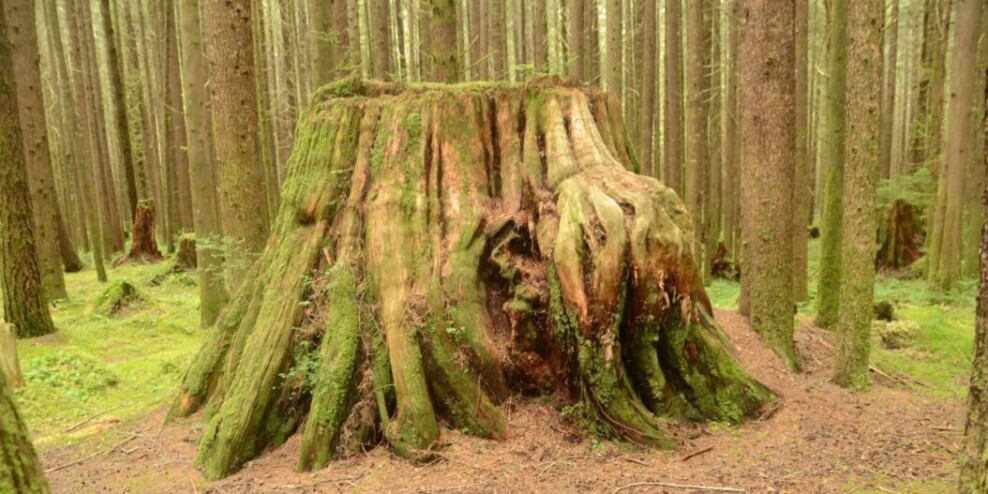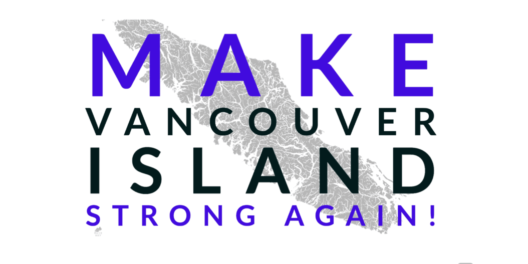According to a new report, the NDP government got a failing grade for old-growth forest protection, A New Future for Old Forests.
In response to growing public concern about the scarcity of old-growth remaining, the BC government commissioned the study from veteran foresters Al Gorley and Garry Merkel. Their submission last fall called for an end to logging high-value ancient trees and funding to help forest-dependent communities transition their economies.
Despite these recommendations, the recent BC budget lacked any additional funds for economic diversification.
Although his talking points acknowledge the old-growth crisis, Premier Horgan’s government has not taken any concrete steps to bring forest management in BC out of the dark ages and into the 21st century.
And in the meantime, the clock is ticking, and it’s business-as-usual in the woods as logging companies continue to high-grade the last of Vancouver Island’s unprotected old growth.
BC has reached the 11th hour in terms of preserving what remains of some of BC’s most productive old forests (considered trees that reach heights of 20 metres or more in 50 years that are some of the most richly biodiverse ecosystems in Canada.)
According to research by Nelson-based ecologist Rachel Holt, just 3 percent of all the old-growth habitat in BC is suitable for growing the biggest trees. And of that relatively small land base, 97 % has already been logged.
That’s why Gorley and Merkel have given Horgan’s government until 2023 to implement all 14 recommendations in their report. This is a golden opportunity for change that has broad support from scientists, the public and many community leaders.
And it’s more than a demand for urgent action to suspend logging in BC’s most at-risk ancient forests. Gorley and Merkel’s report goes much deeper and calls for a “paradigm shift” away from forest management geared toward high volume industrial tree-farming and log exports to an approach that puts biodiversity and resiliency at its heart.
This shift will mean a reduction in logging in some parts of the province. It requires strong government leadership to help communities through this transition. But in the long term, it promises to put forestry on a more sustainable footing with increased local manufacturing and benefits flowing back to communities.
But both Horgan’s government and logging companies are resisting change, not leading. Delaying change will result in more of BC’s rare old forests getting liquidated.
There may be a few short-term jobs and company profits in ignoring the old-growth crisis, but it will leave forest-dependent towns high and dry in the long run.
Change needs to happen fast, so it’s up to us. The future of our communities, our forests, and our jobs are too important to leave up to politicians and logging companies.









